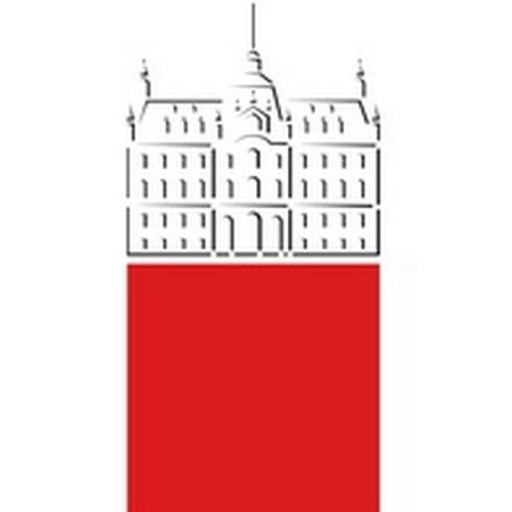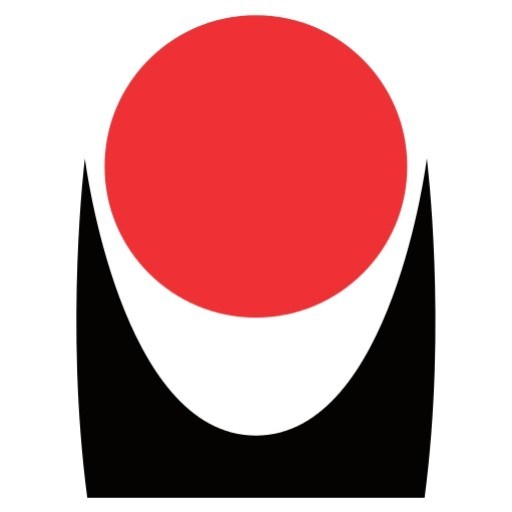Tribology of Surfaces and Interfaces (TRIBOS) at the University of Ljubljana is an advanced interdisciplinary postgraduate program designed to provide students with comprehensive knowledge and practical skills in the field of tribology, which is the study of friction, wear, and lubrication of interacting surfaces in relative motion. This programme aims to prepare graduates for professional careers in research, development, manufacturing, and maintenance within industries such as automotive, aerospace, machinery, materials, and energy, where surface interactions play a crucial role in the performance and longevity of components and systems.
The curriculum combines theoretical foundations with practical applications, covering key topics such as surface physics and chemistry, contact mechanics, tribosystems, lubrication regimes, wear mechanisms, and surface engineering. Students will explore advanced techniques for surface characterization and testing, including microscopy, spectroscopy, and surface topography analysis. Emphasis is placed on understanding the mechanisms underlying surface interactions and developing innovative solutions to minimize friction and wear, thereby improving efficiency and sustainability.
Throughout the programme, students will engage in laboratory work, simulations, and project-based learning to apply their theoretical knowledge to real-world problems. Collaboration with industry partners is an integral part of the education process, ensuring that graduates are well-versed in current challenges and technologies. The programme also promotes the development of research skills, enabling students to contribute to scientific advancements and industrial innovations.
Graduates of TRIBOS will be equipped to analyze and optimize tribological systems, select appropriate materials and lubricants, and implement surface treatment processes. They will possess strong analytical, technical, and problem-solving capabilities, making them valuable assets in multidisciplinary teams focused on improving machinery efficiency, reducing environmental impact, and fostering technological progress.
This master's program is conducted in English and is designed to provide an international learning environment, encouraging cultural exchange and collaboration. The collaboration with renowned experts and research institutions ensures that students receive cutting-edge education aligned with global standards. Upon completion, graduates will be qualified for careers in research and development, quality control, consulting, and technical management, or may continue their studies towards doctoral research, contributing to the ongoing development of tribological science and engineering.
The "Tribology of Surfaces and Interfaces — TRIBOS" program at the University of Ljubljana offers an in-depth exploration of surface phenomena and interfacial interactions that are fundamental to the functioning and longevity of mechanical systems and materials. This specialized master's program is designed to equip students with comprehensive knowledge of the principles of tribology, including friction, wear, lubrication, and surface engineering. Throughout the course, students will examine the microscopic and macroscopic aspects of surface interactions, gaining insights into how these phenomena influence the performance and durability of various materials and components.
The curriculum covers a broad range of topics, starting with the basics of materials science and mechanical engineering, progressing toward advanced concepts in surface characterization, contact mechanics, and the development of tribological systems. Students will engage in theoretical studies as well as practical laboratory exercises, enabling them to analyze surface properties using modern measurement techniques and to apply this knowledge to real-world problems. Emphasis is placed on the design of low-friction and wear-resistant surfaces, the development of lubricants and coatings, and the optimization of mechanical systems for improved efficiency and lifespan.
A key component of the program is interdisciplinary collaboration, encouraging students to integrate principles from physics, chemistry, materials science, and engineering. Students will have opportunities to participate in research projects, internships, and collaborations with industry partners, fostering hands-on experience and preparing them for careers in research, development, and industrial applications related to surface engineering and tribology. Upon graduation, students will be equipped to contribute effectively to the development of innovative solutions in industries such as automotive, aerospace, manufacturing, and nanotechnology.
The program combines lectures, seminars, experimental investigations, and project work, promoting active learning and critical thinking. Graduates will possess a solid foundation in the scientific principles underlying surface and interface phenomena, along with practical skills necessary for analyzing, designing, and improving tribological systems. By focusing on sustainable and environmentally friendly solutions, the TRIBOS program aims to foster responsible innovation in surface engineering and tribology, supporting the advancement of technological development in various sectors.
The program requirements for the Master's degree in Tribology of Surfaces and Interfaces (TRIBOS) at the University of Ljubljana include a Bachelor's degree in Mechanical Engineering, Materials Science, or a closely related field. Applicants are expected to have a solid foundation in mathematics, physics, and materials science, along with relevant work or research experience in surface engineering, lubrication, or material characterization. Proficiency in English is mandatory, demonstrated through standardized tests such as TOEFL or IELTS, or equivalent proof of language skills. The application process involves submitting academic transcripts, a curriculum vitae, a motivation letter explaining the applicant's interest in tribology and research goals, and letters of recommendation from academic or professional referees. The selection committee evaluates candidates based on academic performance, relevant coursework, research experience, and motivation. A basic knowledge of computer programming and data analysis is considered beneficial. Applicants may also be required to participate in an interview, either in person or via videoconference, to assess their motivation and suitability for the program. It is recommended that candidates have prior exposure to research methodologies or laboratory work related to surface interactions, friction, and wear phenomena. During the program, students are expected to complete coursework in advanced tribology, surface engineering, materials science, and mechanical design, along with participating in research projects. The program emphasizes practical laboratory work, internships, and the development of scientific publications. To graduate, students must successfully defend a master's thesis based on original research in the field of tribology of surfaces and interfaces. The program duration is typically two years, with flexible options for part-time study for working professionals. International students are encouraged to apply, and they may need to demonstrate additional visa or residence permit requirements as per university and national regulations.
The Financing studies of the program "Tribology of Surfaces and Interfaces — TRIBOS" at the University of Ljubljana are primarily funded through a combination of public funding, university resources, and student tuition fees. As a master's level program offered by the Faculty of Mechanical Engineering, it benefits from support provided by the Slovenian Ministry of Education, Science, and Sport, which allocates funds for higher education development and research initiatives. These funds enable the university to maintain high-quality teaching standards, support faculty research, and invest in modern laboratory infrastructure necessary for advanced tribology research.
Students admitted to the program are required to pay tuition fees, which are determined by the university and are generally consistent with the fee structure for master's programs at the University of Ljubljana. The tuition fees contribute significantly to the operational costs of the program, including faculty salaries, laboratory equipment, teaching materials, and administrative expenses. For international students, the fees may be higher, but scholarship opportunities and financial aid are available to assist eligible candidates.
In addition to public and tuition funding, the program also benefits from research grants obtained through national and European funding programs. Such grants support innovative projects related to surface engineering, interface phenomena, and material wear, which are core aspects of tribology. These research activities often involve collaboration with industry partners, which may provide additional financial support or resources, fostering a practical and applied approach to the field.
Students may have access to various scholarships, student loans, or financial aid programs offered by the university or the Slovenian government. These financial aids are designed to support students financially throughout their studies, especially those demonstrating academic excellence or facing economic challenges. Furthermore, the program's research projects sometimes include opportunities for students to participate in funded research, internships, or industry-sponsored collaborations, which can also provide financial benefits.
Overall, the funding structure of the Tribology of Surfaces and Interfaces — TRIBOS program aims to ensure the quality of education and research, providing sufficient financial support through a mix of public funds, university resources, student fees, and external research grants. This comprehensive financial framework allows students to focus on acquiring specialized knowledge and practical skills in tribology, surface sciences, and material interfaces, preparing them for competitive careers in academia, industry, and research sectors.
Tribology of Surfaces and Interfaces — TRIBOS is a specialized graduate program offered by the University of Ljubljana, focusing on the science and engineering of surfaces and interfaces. This program provides students with in-depth knowledge in the fields of friction, wear, lubrication, and surface engineering, which are critical for a wide range of industries including manufacturing, automotive, aerospace, and biomedical engineering. The curriculum combines theoretical foundations with practical applications, enabling students to understand the fundamental mechanisms governing surface interactions and to develop innovative solutions for reducing wear and improving the performance of mechanical systems.
The program is designed to equip students with competencies in surface characterization techniques, tribological testing methods, and modeling and simulation of surface phenomena. Through coursework, laboratory work, and research projects, students learn to analyze surface topography, assess material properties, and optimize lubrication strategies. Collaboration with industry partners and participation in research activities are integral parts of the program, providing valuable experience and fostering innovation.
Graduates of TRIBOS are prepared for careers in research and development, quality control, and technical consulting within industrial sectors that rely heavily on surface interactions. They can also pursue academic careers or doctoral studies to further specialize in tribology, surface engineering, or related disciplines. The program emphasizes the importance of interdisciplinary knowledge, combining principles of mechanical engineering, materials science, chemistry, and physics to address complex surface-related challenges.
Overall, Tribology of Surfaces and Interfaces — TRIBOS at the University of Ljubljana offers a comprehensive education that merges theoretical insights with practical expertise, preparing students to contribute effectively to technological advancements and sustainability in engineering applications.










